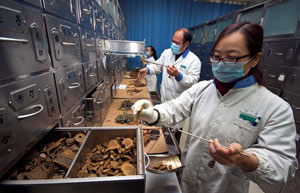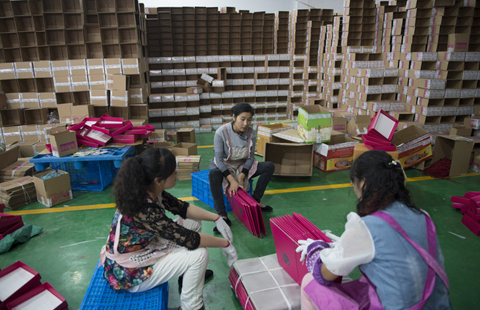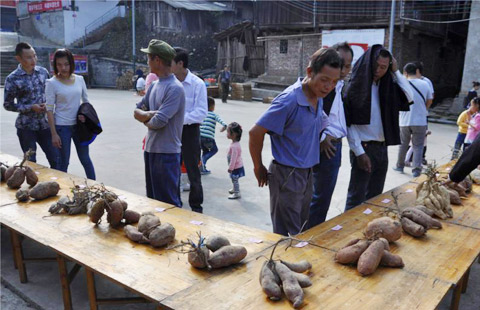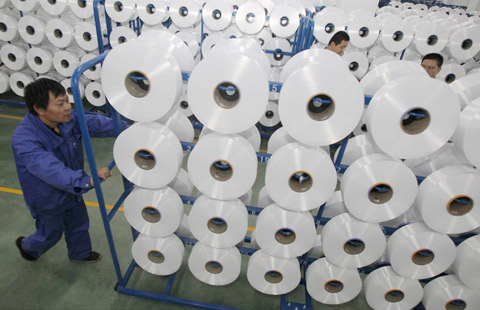Breeding more donkeys to keep tradition alive
By Dai Tian (chinadaily.com.cn) Updated: 2014-10-29 17:45A breeding center in the hometown of donkey-hide gelatin plans to increase its stud scale to 10,000 by the end of next year, as shortened supplies keep pushing up the price of the traditional Chinese medicine.
The center in Dong'e county of Shangdong province, currently with a total stock of about 700, also plans to research on donkey milk and blood and apply the study result to optimize breeding.
"We all choose big-sized black donkeys for breeding, because ejiao made by black donkey-hide is believed to have the highest medical value," said Zhao Zhichao, technician of the breeding center.
He added that the conception rate is 70 percent, and the center would also transport the frozen semen to other breeding areas in Xinjiang and Inner Mongolia.
However, as machinery use in agriculture widens, donkeys are seldom seen working in fields anymore, which has dampened farmers' interest in raising the animal.
Figures from agriculture authorities suggest the number of donkeys raised by farmers dropped to 6.03 million at the end of last year, compared with 11.2 million several years ago. And the number is still dropping.
Dong'e Ejiao Co Ltd, the largest Chinese maker of donkey-hide gelatin by market share, announced in September that it would raise the product's factory-gate price by more than 50 percent as herds dwindle.
It was the third time Dong'e had raised the price since last year. Last August, the company raised the price by 25 percent to 1,098 yuan ($178.70) per 500 grams, followed by a 19 percent increase to 1,298 yuan in January.
Demand for ejiao has been rising by an average of 30 percent a year, according to the company.
Ejiao is credited by many with improving blood circulation and replenishing energy. Its supposed beautifying effects make it a favorite among women.
The Chinese medicine is made of boiling a donkey hide and refining the gelatin and has a history of more than 2,000 years. Traditionally, it is obtained from a series of processes of washing, soaking, rinsing and stewing the hide.
Ejiao production techniques have been listed as a national-class intangible cultural heritage.
|
 |
 |
- VW defends safety of recalled New Sagitar
- SOHO endows $10m to Yale
- Alibaba-Apple alliance a win-win
- China stock index futures close higher on Oct 29
- China's new regional jet starts domestic test flights
- China stocks close higher on Oct 29
- Vietnam's auto imports from China sharply increase
- Chinese economy continues adjusting to "new normal"
















